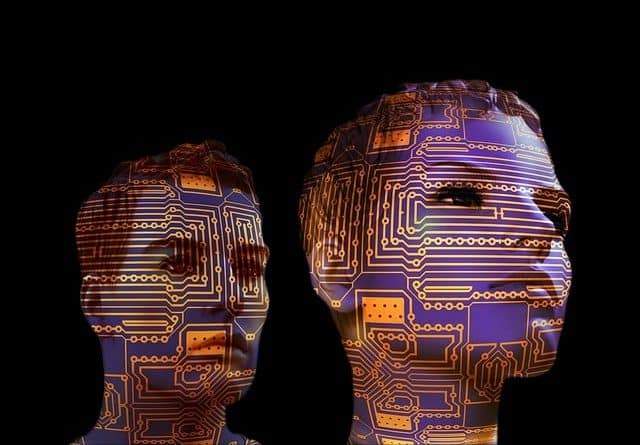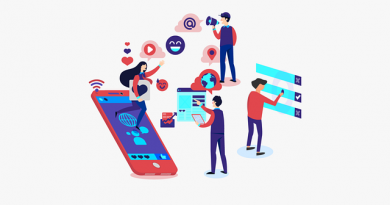Artificial Intelligence is not yet killing jobs
Certainly! As of my knowledge cutoff in September 2021, artificial intelligence (AI) has not been widely recognized as a job killer. While AI and automation technologies have the potential to disrupt certain industries and job roles, the overall impact on employment is still a subject of debate among experts.
AI has demonstrated the ability to automate routine and repetitive tasks, leading to concerns about job displacement in certain sectors. However, it is important to note that AI is also creating new opportunities and transforming industries. It has the potential to augment human capabilities, improve productivity, and generate economic growth.
Historically, technological advancements have often led to the creation of new jobs and industries, even as they rendered some existing roles obsolete. AI has the potential to do the same by creating demand for jobs that require skills in areas such as data analysis, machine learning, and AI system development.
While it is true that some jobs may be automated or altered due to AI, it is also crucial to focus on reskilling and upskilling the workforce to adapt to the changing demands of the job market.
By acquiring new skills and knowledge, individuals can position themselves for the jobs of the future and potentially work alongside AI systems to enhance productivity and innovation.
It is important to monitor ongoing developments and evaluate the impact of AI on employment as technology continues to advance. Government policies, education systems, and proactive measures by businesses can play a significant role in managing potential disruptions and ensuring a smooth transition for the workforce in the face of technological advancements.
While it is important to acknowledge that AI may lead to job displacement in certain areas, it is equally important to recognize the potential for job creation and the evolution of existing roles.
AI technology can enable businesses to streamline operations, improve efficiency, and deliver new products and services, which can result in the need for a different set of skills.
Moreover, AI systems require human oversight, maintenance, and development. They need skilled professionals who can design, train, and fine-tune these systems, ensuring they operate accurately and ethically.
This creates opportunities for individuals with expertise in AI and related fields.
Additionally, AI can enhance productivity and free up human workers to focus on more complex and creative tasks. By automating mundane and repetitive aspects of jobs, AI can allow employees to engage in higher-value activities that require critical thinking, problem-solving, and interpersonal skills.
This shift can lead to job enrichment and job satisfaction for workers.
It’s worth mentioning that the adoption of new technologies often takes time, and the impact on jobs varies across industries and regions. Some jobs may undergo significant changes, requiring workers to adapt their skill sets.
However, studies have shown that historically, technology-driven transformations have resulted in a net positive effect on employment over the long term.
To mitigate any potential negative effects, governments, educational institutions, and businesses can collaborate to provide reskilling and upskilling programs to ensure that workers can acquire the necessary skills for the jobs of the future.
By investing in education and training initiatives, we can prepare the workforce for the evolving demands of the AI-driven economy.
In conclusion, while the impact of AI on jobs remains a complex and evolving topic, it is not accurate to claim that AI is currently killing jobs. Rather, it is reshaping the nature of work, creating new opportunities, and necessitating a shift in skill requirements.
By embracing AI technology and investing in human capital, we can navigate this transformation and harness the potential benefits that AI offers for society, the economy, and the workforce.
Furthermore, it is important to recognize that AI is a tool that complements human capabilities, rather than replacing them entirely.
AI systems are designed to assist humans, improve decision-making, and automate specific tasks, but they still rely on human guidance and oversight.
The integration of AI into various industries and sectors has the potential to drive innovation and economic growth. By leveraging AI technology, businesses can gain valuable insights from vast amounts of data, make more informed decisions, and develop personalized customer experiences.
This can lead to the creation of new products, services, and business models, thereby opening up new avenues for job creation.
Moreover, AI can contribute to tackling societal challenges in areas such as healthcare, climate change, and transportation. AI-powered advancements in healthcare can lead to more accurate diagnoses, personalized treatments, and improved patient care.
In environmental sustainability, AI can optimize energy consumption, facilitate climate modeling, and enable more efficient resource management.
It is important to approach the topic of AI and jobs with a balanced perspective. While certain job roles may be susceptible to automation, new opportunities will arise as technology advances.
Reskilling and adapting to emerging trends will be crucial for individuals to remain competitive in the job market.
To fully harness the potential of AI and ensure its benefits are shared by all, it is essential to address potential challenges such as ethical considerations, data privacy, and the potential for bias in AI algorithms.
By establishing appropriate regulations and ethical frameworks, we can shape the development and deployment of AI in a way that aligns with societal values and safeguards against any negative impacts.
In summary, while AI may disrupt certain job roles and industries, it also presents opportunities for innovation, economic growth, and job creation.
By proactively preparing the workforce, fostering collaboration between humans and AI, and addressing ethical concerns, we can navigate the evolving landscape of AI and ensure a positive impact on jobs and society as a whole.




